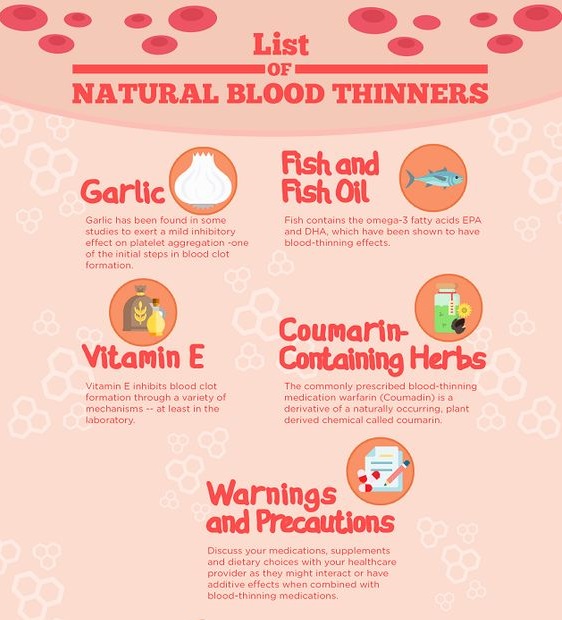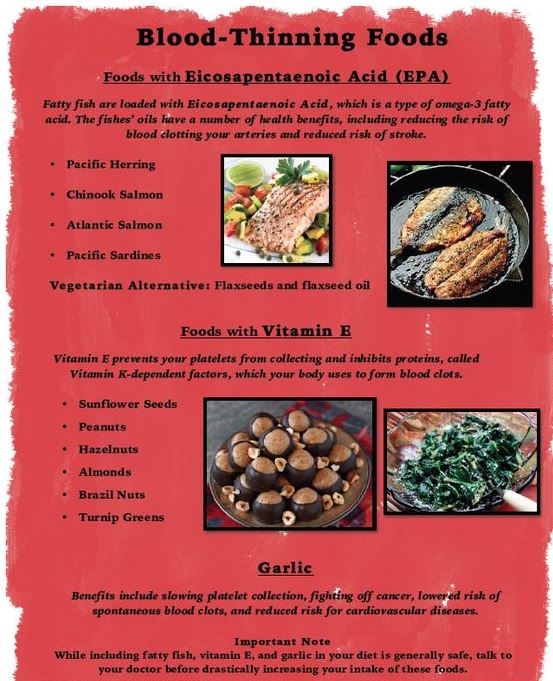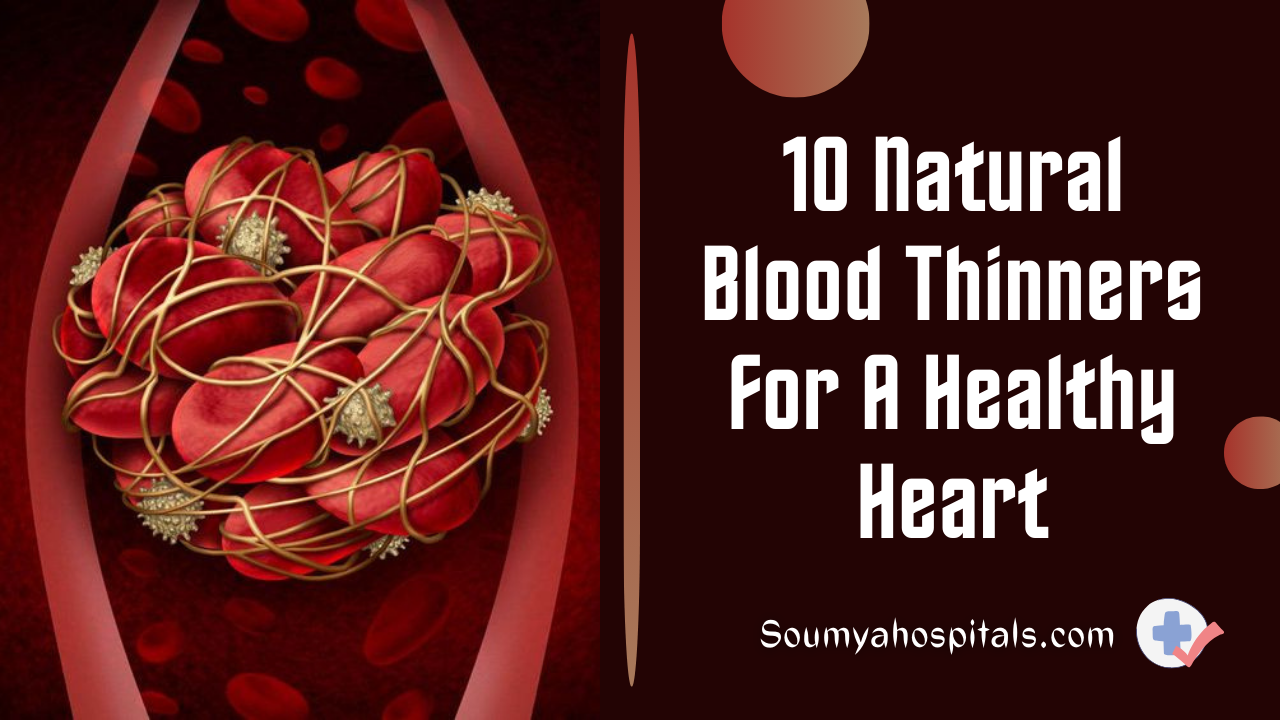You might have heard that controlling blood pressure and cholesterol levels can lower your risk of a heart attack. Blood thinner medications can also help by reducing the formation of blood clots. These are made up of platelets (fragments of blood cells), red blood cells, fibrin (protein), and white blood cells. Blood thinners stop these components from sticking together or aggregating to form a clot. Otherwise, they can block blood flow to your heart or brain, leading to a heart attack or stroke.
Generally, doctors prescribe blood thinning medication if you’ve had heart valve surgery, a heart defect, or atrial fibrillation. This condition is characterized by a heart that doesn’t beat properly. As a result, blood pools in the heart chamber, encouraging the formation of blood clots.
You don’t have to depend on medication, though. Many everyday foods have blood thinning properties. Let’s take a look at 10 natural blood thinners that can protect your heart in the best way.
1. Beetroot
Beets are a rich source of nitrates, which are known to improve heart health. They can also significantly reduce blood clotting. A study that tested the blood of healthy volunteers three hours after consuming 500 mL of beetroot juice noted increased nitrate levels and decreased platelet aggregation. Beets have also been found to lower blood pressure. Needless to say, they may protect your heart in more ways than one.
2. Red Wine
Red wine is considered to have a protective effect against atherosclerosis and coronary heart disease. Research has found that the ethanol and bio-active compounds trans-resveratrol and quercetin found in red wine double as blood thinners. So, kicking back with an occasional glass of red might not be a bad idea after all!
3. Tomato
Tomatoes and tomato products like ketchup, tomato juice, and pasta sauce have been found to inhibit platelet aggregation. Natural compounds like caffeic, chlorogenic, ferulic, and p-coumaric acids in these products may be responsible.
4. Dark Chocolate
Flavonoids in cocoa can help thin the blood. A study that assessed the effects of white, milk, and dark chocolate found inhibited platelet aggregation in participants who consumed dark chocolate. White and milk chocolate, which have less cocoa, did not have a significant effect on blood clotting. So there you go – another reason to love chocolate. Opt for the dark kind which is high in cocoa and flavonoids.

5. Fish And Fish Oil
A diet rich in fish and fish oil can thin the blood. A study that gave healthy students a fish or fish oil diet found that platelet aggregation reduced after 15 weeks in both groups. Specifically, the omega-3 fatty acids in fish are thought to have a natural blood thinning effect.
6. Ginseng
This herb has been used in traditional Chinese medicine for its many health benefits, ranging from immune strength to stress relief. Ginseng can work as a natural blood thinner, too. Red ginseng roots have a saponin (a chemical compound found in some plants which can foam like soap) called ginsenoside Rg1 that has also been found to inhibit platelet aggregation.
7. Garlic And Onion
Sulfur-containing compounds such as adenosine, allicin, and paraffinic polysulfides in onions and garlic can act as blood thinners. Research indicates that adenosine may be the most powerful. These flavorsome vegetables from the lily family can also keep your heart healthy by lowering blood pressure.
8. Grape
Flavonoids found in grapes have blood thinning effects. An animal study that fed grape juice to monkeys for seven days proves just that. According to researchers, flavonoids in grapes such as kaempferol, quercetin, and myricetin could be responsible for the blood thinning effects that were observed. These flavonoids have been found to inhibit platelet aggregation in lab studies. Starting the day with a delicious glass of grape juice may be the key to protecting your heart.
9. Ginger
Both dry ginger and extracts of raw ginger can reduce the formation of blood clots. In one study, researchers purposely increased platelet aggregation in healthy men by feeding them 100g of butter for seven days. But when 5g of dry ginger was added to the fatty meal, platelet aggregation was significantly inhibited. Ginger also acts as a cholesterol-lowering and anti-inflammatory agent, doing your heart a world of good.

10. Vitamin E
Vitamin E is known for its blood thinning properties. When taken orally, it can decrease platelet aggregation by improving sensitivity to prostaglandin E1, a platelet-inhibiting fatty acid. Keep in mind that 22.4 IU is the daily recommended intake for an adult with an upper limit of 1,100 IU/day (for supplements with synthetic vitamin E) and 1,500 IU/day (for supplements from the natural vitamin E). Overdosing can increase your risk of serious conditions like hemorrhagic stroke (bleeding in the brain). If you want to avoid supplements, fuel up on vitamin E by eating nuts like almonds and peanuts. Vegetable oils, like wheat germ and safflower, are also rich sources. Vegetables like broccoli and spinach can also provide vitamin E.
A Note Of Caution
When you get a cut or wound, the clotting property of blood stops bleeding and blood loss. If you’ve been prescribed medication that thins the blood, eating foods that do the same may amplify the medication’s effect. It is best to talk to your doctor about this. Finally, don’t forget that a balanced diet plays an important part in keeping your heart healthy.
Some people due to lack of awareness, they will encourage by the blood transfusion.
